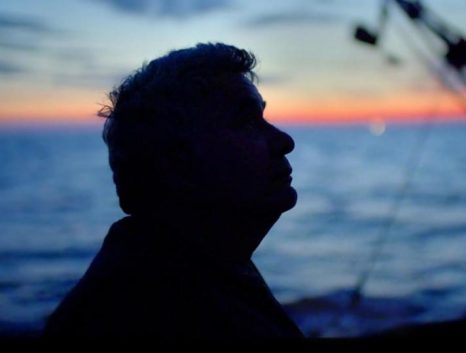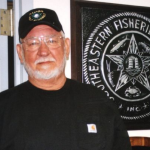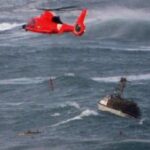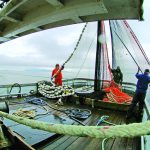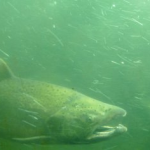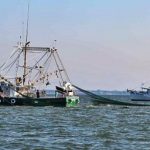Monthly Archives: April 2017
Withdraw Unlawful Plan Forcing Fishermen to Pay for At-Sea Monitors – Cause of Action Institute
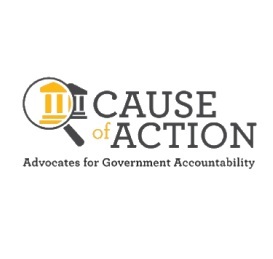 Cause of Action Institute (“CoA Institute”) has submitted a regulatory comment to the New England Fishery Management Council (“NEFMC”) questioning the Council’s legal authority to move forward a controversial amendment that would force more fishermen to pay for costly at-sea monitors, which are the government’s responsibility. CoA Institute advised the NEFMC to abandon the Omnibus Amendment, which would imperil an already hard-hit fishing industry by requiring certain fishermen to pay for monitors to police their at-sea activity. The plan would also open more regional Atlantic fisheries to industry-funded monitors. “The Omnibus Amendment is unlawful and will make it virtually impossible for countless small-business fishermen to pursue their livelihood,” said Julie Smith, CoA Institute Vice President. “Many of these fishermen come from families that have fished American coastal waters for generations. The federal government should not regulate them out of business. Congress has not authorized it and the economic consequences are too dire. If an agency lacks statutory authority or appropriated funds, it has no power to act. The New England Council should withdraw the Omnibus Amendment.” The cost for a monitor under the amendment is expected to range from $710 to $818 per day at sea. That would exceed the revenue a fisherman typically lands from his daily catch. CoA Institute represents fishermen challenging another industry-funded monitoring program in the Northeast groundfish fishery. In that case, a government study predicted that industry-funded monitoring would result in up to 60 percent of mostly small-scale vessels going out of business—a result that the government blithely characterized as a “restructuring” of the groundfish fleet. Learn more about the case HERE 14:00
Cause of Action Institute (“CoA Institute”) has submitted a regulatory comment to the New England Fishery Management Council (“NEFMC”) questioning the Council’s legal authority to move forward a controversial amendment that would force more fishermen to pay for costly at-sea monitors, which are the government’s responsibility. CoA Institute advised the NEFMC to abandon the Omnibus Amendment, which would imperil an already hard-hit fishing industry by requiring certain fishermen to pay for monitors to police their at-sea activity. The plan would also open more regional Atlantic fisheries to industry-funded monitors. “The Omnibus Amendment is unlawful and will make it virtually impossible for countless small-business fishermen to pursue their livelihood,” said Julie Smith, CoA Institute Vice President. “Many of these fishermen come from families that have fished American coastal waters for generations. The federal government should not regulate them out of business. Congress has not authorized it and the economic consequences are too dire. If an agency lacks statutory authority or appropriated funds, it has no power to act. The New England Council should withdraw the Omnibus Amendment.” The cost for a monitor under the amendment is expected to range from $710 to $818 per day at sea. That would exceed the revenue a fisherman typically lands from his daily catch. CoA Institute represents fishermen challenging another industry-funded monitoring program in the Northeast groundfish fishery. In that case, a government study predicted that industry-funded monitoring would result in up to 60 percent of mostly small-scale vessels going out of business—a result that the government blithely characterized as a “restructuring” of the groundfish fleet. Learn more about the case HERE 14:00
Bi-Partisan Bill seeks to allow tribes to kill Columbia River sea lions
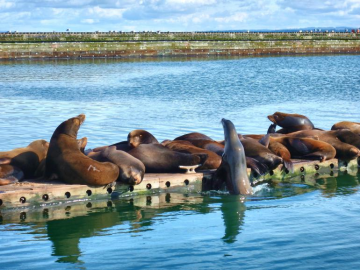 Some Northwest Indian tribes would be allowed to kill a limited number of sea lions that prey on endangered salmon in the Columbia River under a bill introduced in Congress. The bipartisan bill was introduced last weekend by U.S. House members Jaime Herrera Beutler, a Washington Republican, and Kurt Schrader, an Oregon Democrat. If passed, the bill would allow the Warm Springs, Umatilla, Yakama, and Nez Perce tribes to kill some sea lions that are decimating endangered salmon runs during their return from the ocean to inland spawning grounds. Currently only the states of Oregon, Washington and Idaho can kill sea lions along the river. “The spring chinook loss, coupled with the growing sea lion population, has placed us in an emergency situation,” said Leland Bill, chairman of the commission. Sea lion populations have surged since the passage of the Marine Mammal Protection Act in 1972. There were about 30,000 California sea lions when the act passed, but the population has since grown to over 300,000. click here to read the article 12:22
Some Northwest Indian tribes would be allowed to kill a limited number of sea lions that prey on endangered salmon in the Columbia River under a bill introduced in Congress. The bipartisan bill was introduced last weekend by U.S. House members Jaime Herrera Beutler, a Washington Republican, and Kurt Schrader, an Oregon Democrat. If passed, the bill would allow the Warm Springs, Umatilla, Yakama, and Nez Perce tribes to kill some sea lions that are decimating endangered salmon runs during their return from the ocean to inland spawning grounds. Currently only the states of Oregon, Washington and Idaho can kill sea lions along the river. “The spring chinook loss, coupled with the growing sea lion population, has placed us in an emergency situation,” said Leland Bill, chairman of the commission. Sea lion populations have surged since the passage of the Marine Mammal Protection Act in 1972. There were about 30,000 California sea lions when the act passed, but the population has since grown to over 300,000. click here to read the article 12:22
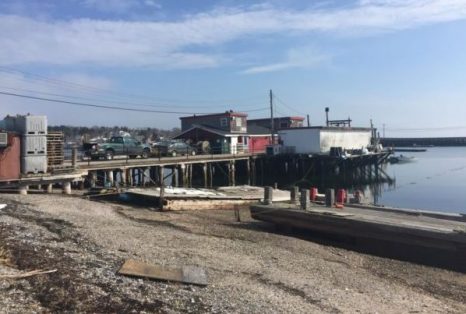
Auction of historic lobster wharf could change life on this Maine island
The first true sign of spring arrived Tuesday on Bailey Island, as temperatures hovered around 60 degrees and lobstermen painted buoys and repaired traps near Cook’s Lobster & Ale House, just over the historic Cribstone Bridge at the tip of Harpswell. Nick and Jennifer Charboneau were busy at the 62-year-old restaurant, readying for the second weekend of the new season following an “amazing” 2016, their first full season at the helm of the waterfront restaurant that has been featured on national television advertising campaigns and multiple travel magazines. Although the adjacent commercial wharf was still, with lobster boats not yet active for the season, it was the focus of much discussion in the area. Following a preview Wednesday and another next week, the wharf and associated docks and outbuildings will be auctioned “as is” to the highest bidder on April 25. The outcome of that auction could mean big changes for the fishing community on the island. click here to read the story 11:27
Fish Politics – Victim of the state
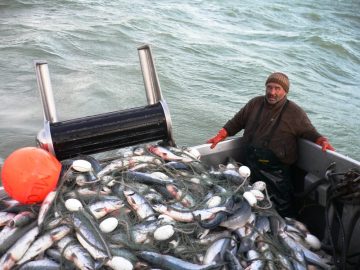 Once revered for world-leading skills at managing wild salmon, the Alaska Department of Fish and Game today finds itself under attack as incompetent as the North Pacific Fisheries Management Council begins court-ordered consideration of salmon management in the federal waters of Cook Inlet. The most powerful commercial fishing organization in the 49th state’s most populated region says its members have been robbed of $33 million over the past six years thanks to state mismanagement of salmon, and they want the federal government to make things right. The United Cook Inlet Drift Association forced the management issue into federal court hoping to get its nets around more salmon. It now accuses Fish and Game’s Commercial Fisheries Division of grossly mismanaging runs bound for the Kenai, Kasilof and Susitna rivers for years.,,The state rebuilt them to record levels, but along the way the politics of fish changed. click here to continue this Big Read 10:55
Once revered for world-leading skills at managing wild salmon, the Alaska Department of Fish and Game today finds itself under attack as incompetent as the North Pacific Fisheries Management Council begins court-ordered consideration of salmon management in the federal waters of Cook Inlet. The most powerful commercial fishing organization in the 49th state’s most populated region says its members have been robbed of $33 million over the past six years thanks to state mismanagement of salmon, and they want the federal government to make things right. The United Cook Inlet Drift Association forced the management issue into federal court hoping to get its nets around more salmon. It now accuses Fish and Game’s Commercial Fisheries Division of grossly mismanaging runs bound for the Kenai, Kasilof and Susitna rivers for years.,,The state rebuilt them to record levels, but along the way the politics of fish changed. click here to continue this Big Read 10:55
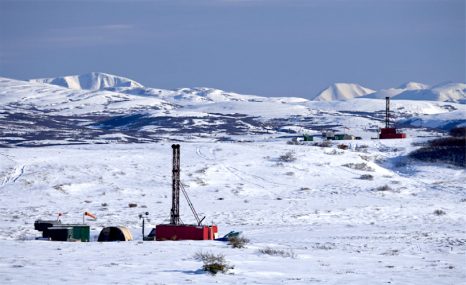
Not Good. Alaska approves key permit for Pebble copper-gold mine, with conditions
Shares in Canadian miner Northern Dynasty Minerals (TSX:NDM) were soaring Wednesday morning following Alaska’s Department of Natural Resources (DNR) approval of a long-awaited land-use permit that clears the way for the company’s vast, but stalled Pebble copper-gold-silver project. The permit, issued late Tuesday, allows Northern Dynasty’s subsidiary — Pebble Limited Partnership — to conduct reclamation and monitoring activities at hundreds of boreholes for the next 12 months. The company, which applied for such permit in October last year, was hoping to get it until 2018. The land use permit comes after months of reviewing the application and over 1,000 public comments, the authority said. grrrrrr. click here to read the story 10:24
Minister LeBlanc Announces Increased Access for Indigenous Groups to Southern Gulf Snow Crab Fishery
 The Honourable Dominic LeBlanc, Minister of Fisheries, Oceans and the Canadian Coast Guard, today announced the management decision for Crab Fishing Areas (CFA) 12, 12E, 12F, and 19. The decision includes a one-time setting aside of up to 1,100 tonnes from CFAs 12 and 19 for Indigenous groups in the area to increase Indigenous access to the fishery. The Total Allowable Catch (TAC) amount is the highest in Southern Gulf of St. Lawrence (SGSL) history because of a rare occurrence with the species which resulted in a significant increase of the snow crab biomass this year. The biomass is expected to return to normal in the following years. Current harvesters will also see significant benefits during this particularly lucrative year, including a historic increase in quota and forecasted market value. The decision follows extensive consultations with traditional crabbers, Indigenous groups, and other stakeholders in the industry. Details on share allocations for the 2017 fishery can be found in the Notice to Harvesters. click here to read the story 08:09
The Honourable Dominic LeBlanc, Minister of Fisheries, Oceans and the Canadian Coast Guard, today announced the management decision for Crab Fishing Areas (CFA) 12, 12E, 12F, and 19. The decision includes a one-time setting aside of up to 1,100 tonnes from CFAs 12 and 19 for Indigenous groups in the area to increase Indigenous access to the fishery. The Total Allowable Catch (TAC) amount is the highest in Southern Gulf of St. Lawrence (SGSL) history because of a rare occurrence with the species which resulted in a significant increase of the snow crab biomass this year. The biomass is expected to return to normal in the following years. Current harvesters will also see significant benefits during this particularly lucrative year, including a historic increase in quota and forecasted market value. The decision follows extensive consultations with traditional crabbers, Indigenous groups, and other stakeholders in the industry. Details on share allocations for the 2017 fishery can be found in the Notice to Harvesters. click here to read the story 08:09
Who gets the fish? Support H.R. 200 – The “Strengthening Fishing Communities and Increasing Flexibility in Fisheries Management Act”
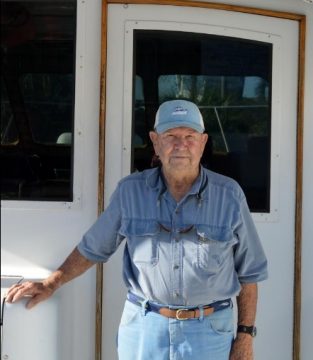 Capt. Chuck Guilford has been searching the waters of the Gulf of Mexico for the bounty of the sea for 41 years. When Guilford started his career as charter boat captain and commercial fisherman there wasn’t a National Marine Fisheries Service (NMFS) and he said the fisherman handled the fishery themselves. Now Guilford feels as if he has no control. He used to go to the meetings of the NMFS as far away as Washington D.C., but he’s missed the last two. “I haven’t attended last two meetings because it was a waste of my dollars and my time,” Guilford said. “I have finally come to the conclusion after 10 years of attending meeting, that when the Marine Fisheries Council has a meeting they have already decided what they are going to do.” Some of Guilford’s concerns may soon be answered. The “Strengthening Fishing Communities and Increasing Flexibility in Fisheries Management Act” or H.R. 200 would amend the “Magnuson-Stevens Act” which is currently the law of the fisheries. The amendment would have NMFS take in account the economic costs of regulation, allow for greater community involvement, greater transparency in procedure and collected data, a limitation on future catch-share programs, and independent privately funded fish stock assessment to be used when available. click here to read this article, and contact your representative and TELL them to support HR 200 07:24
Capt. Chuck Guilford has been searching the waters of the Gulf of Mexico for the bounty of the sea for 41 years. When Guilford started his career as charter boat captain and commercial fisherman there wasn’t a National Marine Fisheries Service (NMFS) and he said the fisherman handled the fishery themselves. Now Guilford feels as if he has no control. He used to go to the meetings of the NMFS as far away as Washington D.C., but he’s missed the last two. “I haven’t attended last two meetings because it was a waste of my dollars and my time,” Guilford said. “I have finally come to the conclusion after 10 years of attending meeting, that when the Marine Fisheries Council has a meeting they have already decided what they are going to do.” Some of Guilford’s concerns may soon be answered. The “Strengthening Fishing Communities and Increasing Flexibility in Fisheries Management Act” or H.R. 200 would amend the “Magnuson-Stevens Act” which is currently the law of the fisheries. The amendment would have NMFS take in account the economic costs of regulation, allow for greater community involvement, greater transparency in procedure and collected data, a limitation on future catch-share programs, and independent privately funded fish stock assessment to be used when available. click here to read this article, and contact your representative and TELL them to support HR 200 07:24
Controversy over New England region’s cod population – Now fishermen spend more time avoiding cod than catching it
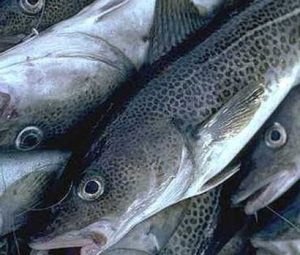 Three letters to the editor, one from from Jackie Odell, Executive director Northeast Seafood Coalition, Re “dwindling” cod population no fluke in Mass.” (Editorial, April 5): Small family-owned fishing businesses operating in New England rely upon sound science. In recent years, reports for stocks like Gulf of Maine cod have gone from being overly optimistic to overly pessimistic, seemingly overnight. This flip-flop has justifiably created doubt and suspicion among those who participate in the fishery.,, a joint letter from Reps Keating, Lynch, and Moulton, We represent the Commonwealth’s coastal communities and their hard-working fishermen and -women as well as the scientists working to better understand how the fishery is evolving. We share a common goal: understanding the science that can get us to a sustainable fishery.,, and Peter Dorfman. The cod, which used to be abundant and a staple of our economy, are now scarce and possibly on the verge of extinction. It is a genuine shame that the people responsible for this situation cannot bring themselves to accept what has long been scientifically established fact. Click here to read them, and check out the comments. 19:23
Three letters to the editor, one from from Jackie Odell, Executive director Northeast Seafood Coalition, Re “dwindling” cod population no fluke in Mass.” (Editorial, April 5): Small family-owned fishing businesses operating in New England rely upon sound science. In recent years, reports for stocks like Gulf of Maine cod have gone from being overly optimistic to overly pessimistic, seemingly overnight. This flip-flop has justifiably created doubt and suspicion among those who participate in the fishery.,, a joint letter from Reps Keating, Lynch, and Moulton, We represent the Commonwealth’s coastal communities and their hard-working fishermen and -women as well as the scientists working to better understand how the fishery is evolving. We share a common goal: understanding the science that can get us to a sustainable fishery.,, and Peter Dorfman. The cod, which used to be abundant and a staple of our economy, are now scarce and possibly on the verge of extinction. It is a genuine shame that the people responsible for this situation cannot bring themselves to accept what has long been scientifically established fact. Click here to read them, and check out the comments. 19:23
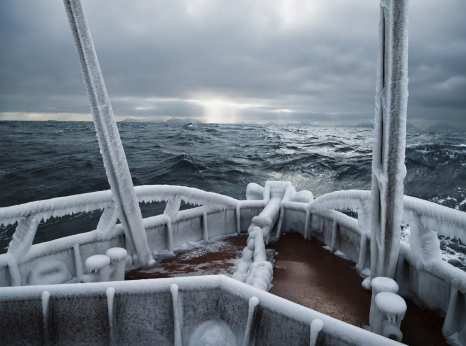
Aleutian Dreams: life as an Alaska fisherman – in pictures
Corey Arnold is a fine art photographer and a commercial fisherman, working the stormy waters of the Bering Sea by Alaska. His latest work documents life in this remote wilderness, both at sea and on the shore, capturing trawlers, foxes, eagles and the grandeur of the scenery. Aleutian Dreams can be seen at Charles A. Hartman Fine Art in Portland, Oregon, until 27 May. The photos are stunning, and worth a look. click here to view the images. 18:32
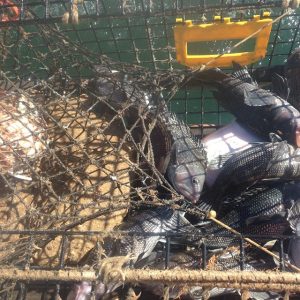
Connecticut Congressional Members Urge Lobster Regulators To Consider Impact of New Rules on Lobstermen
Connecticut’s remaining lobstermen should be heard before regional fishing regulators decide on a new plan to try and restore Long Island Sound’s lobster population, members of Connecticut congressional delegation urged Wednesday. Five members of the delegation signed a letter to the Atlantic States Marine Fisheries Commission asking that they get more feedback from Connecticut lobster operations before approving a final lobster management plan. Long Island Sound’s lobster population crashed in 1988-89. Marine scientists believe that climate change,,, Some Connecticut lobstermen argued that the dramatic population decline coincided with the widespread use of a particular pesticide used by Connecticut and New York to combat mosquitoes carrying the West Nile virus. click to read the story here 17:43
Seal hunt provokes fury from activists
 Humane Society International strongly condemned Canada’s annual Atlantic seal hunt as “absolutely devastating” just hours after it began Tuesday morning. While the federal government says that strict protocols are followed when authorizing commercial seal hunts, HSI Canada says seals are dragged onto boats and clubbed to death after being impaled on metal hooks, while others die painfully after being shot. “Most adult people can’t bear to watch it on video,” said Rebecca Aldworth, HSI Canada’s executive director. Her organization says that Justin Trudeau’s government, by permitting commercial seal hunts to proceed, is “completely out of step with Canadian values and the international community.” But Adam Burns of the Department of Fisheries and Oceans said the seal hunt “provides really important economic activity” to Atlantic Canadian coastal communities. click to read the story 14:53
Humane Society International strongly condemned Canada’s annual Atlantic seal hunt as “absolutely devastating” just hours after it began Tuesday morning. While the federal government says that strict protocols are followed when authorizing commercial seal hunts, HSI Canada says seals are dragged onto boats and clubbed to death after being impaled on metal hooks, while others die painfully after being shot. “Most adult people can’t bear to watch it on video,” said Rebecca Aldworth, HSI Canada’s executive director. Her organization says that Justin Trudeau’s government, by permitting commercial seal hunts to proceed, is “completely out of step with Canadian values and the international community.” But Adam Burns of the Department of Fisheries and Oceans said the seal hunt “provides really important economic activity” to Atlantic Canadian coastal communities. click to read the story 14:53
InnovaSea Systems Inc. has raised $15 million for farming fish in the open ocean
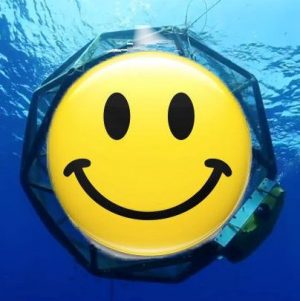 Boston-based InnovaSea Systems Inc. has raised $15 million to develop an all-in-one system for farming fish in the open ocean, an approach that the company and its partners say is vital to a sustainable future for the seafood industry. InnovaSea was formed in 2015 from the merger of Maine’s Ocean Farm Technologies Inc. and another company out of Seattle, Washington. Both companies made large underwater pens to contain fish while they grow big enough to harvest for food. The new funding comes from Cuna Del Mar, an investment firm focused on open-ocean aquaculture. Cuna Del Mar formed InnovaSea after buying a stake in each of its predecessor companies. continue reading the article here 13:28 (you may need to register, easy enough)
Boston-based InnovaSea Systems Inc. has raised $15 million to develop an all-in-one system for farming fish in the open ocean, an approach that the company and its partners say is vital to a sustainable future for the seafood industry. InnovaSea was formed in 2015 from the merger of Maine’s Ocean Farm Technologies Inc. and another company out of Seattle, Washington. Both companies made large underwater pens to contain fish while they grow big enough to harvest for food. The new funding comes from Cuna Del Mar, an investment firm focused on open-ocean aquaculture. Cuna Del Mar formed InnovaSea after buying a stake in each of its predecessor companies. continue reading the article here 13:28 (you may need to register, easy enough)
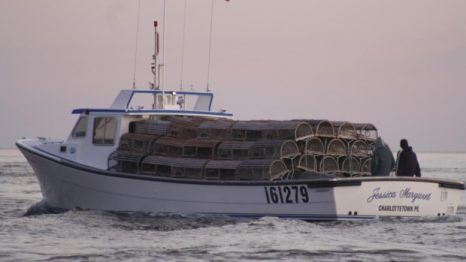
CETA Deal could be in force for opening day of lobster season on P.E.I.
Canada’s free trade deal with Europe is only steps away from being ratified in Ottawa, and the Lobster Council of Canada is telling exporters to get ready. When CETA is passed an eight per cent tariffs on live lobster shipped to Europe will immediately disappear, and could happen as soon as May 1, the day the spring lobster season on P.E.I. opens. Lobster industry officials in Maine are worried that the disappearance of those tariffs, while tariffs on U.S. lobster remain, could eat into their exports. “For the lobster sector it will mean tariff free access to 27 countries in Europe over the next number of years,” said Geoff Irvine, executive director of the Lobster Council of Canada. Read the rest here 12:32
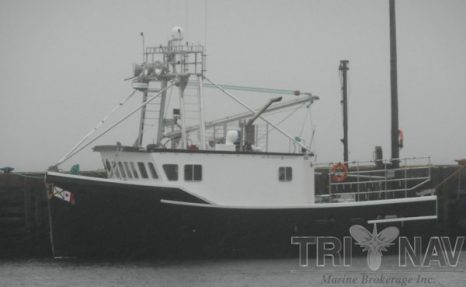
Athearn Marine Agency Boat of the Week: 49ft.x27ft. Crab/Lobster vessel, 6 Cylinder Cat C-18
Specifications, information and 30 photo’s click here To see all the boats in this series, Click here 12:05
San Diego’s commercial fishermen and the Seaport development
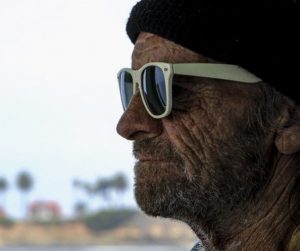 “The one commitment I’ll give you is — we’ll never trick you,” Yehudi Gaffen told a crowd of more than 20 commercial fishermen gathered for a meeting at the Hubbs SeaWorld Research Institute in mid-March. “This project,” he said of Seaport, “we’re going to own it. It’s the legacy of me and my partner, and the last thing we want is our key stakeholder to feel we pulled a fast one on you.” A few grumbles, some head nods. Though it sounds like the start of a tense relationship, Gaffen’s speech came almost two years into working with San Diego’s fishermen, who have had a hard time trusting the man with grand designs on their home. But what other choice do they have? click here to read the story 11:00
“The one commitment I’ll give you is — we’ll never trick you,” Yehudi Gaffen told a crowd of more than 20 commercial fishermen gathered for a meeting at the Hubbs SeaWorld Research Institute in mid-March. “This project,” he said of Seaport, “we’re going to own it. It’s the legacy of me and my partner, and the last thing we want is our key stakeholder to feel we pulled a fast one on you.” A few grumbles, some head nods. Though it sounds like the start of a tense relationship, Gaffen’s speech came almost two years into working with San Diego’s fishermen, who have had a hard time trusting the man with grand designs on their home. But what other choice do they have? click here to read the story 11:00
How Did ‘The Codfather’ Rise? Some Say Fishing Rules Pull Up Big Fishermen
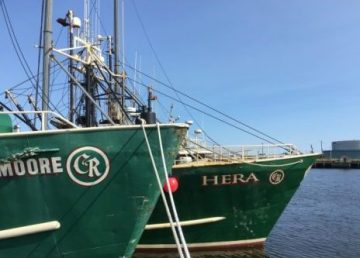 While Carlos Rafael waits to hear his fate, some wonder whether there could be another “Codfather.” Critics say fishing industry regulations pave the way for bigger and more corrupt fishing enterprises. But, some, like Janice Plante of the New England Fisheries Managment Council, disagree with those who blame the regulatory system, insisting the rules don’t “make somebody a criminal.” Joining Morning Edition is Niaz Dorry, of the Gloucester-based Northwest Atlantic Marine Alliance. She explains why she believes Rafael’s success is connected to fishing industry rules. click here to listen to the audio report 08:32
While Carlos Rafael waits to hear his fate, some wonder whether there could be another “Codfather.” Critics say fishing industry regulations pave the way for bigger and more corrupt fishing enterprises. But, some, like Janice Plante of the New England Fisheries Managment Council, disagree with those who blame the regulatory system, insisting the rules don’t “make somebody a criminal.” Joining Morning Edition is Niaz Dorry, of the Gloucester-based Northwest Atlantic Marine Alliance. She explains why she believes Rafael’s success is connected to fishing industry rules. click here to listen to the audio report 08:32
Crossing the Bar – David C. DuBois of Mattapoisett, founder and principal owner of Marine Safety Consultants, Inc
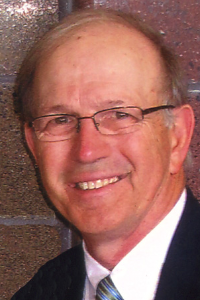 David C. DuBois, 69, of Mattapoisett passed away suddenly on Saturday April 8, 2017 while finishing a good round of golf with a close friend on a beautiful spring day. He was the loving husband of Patricia “Trish” (Chandler) DuBois. Born in Waterville, Maine, the son of Marie (Dionne) DuBois of Torrington, CT and the late Joseph DuBois, he lived in the South Coast area for many years. David was a graduate of the United States Coast Guard Academy. He later served in the Coast Guard for 11 years until his discharge as Lieutenant Commander in 1980. He was the founder and principal owner of Marine Safety Consultants, Inc. in Fairhaven, where he was still active in running the day-to-day business. He was proud of his professional achievements, but more proud to include many of those associates in his close group of friends. David was known for his generosity to others. He loved people and helped many throughout his life. He had a personal relationship with everyone he met. click here to read the notice 08:02
David C. DuBois, 69, of Mattapoisett passed away suddenly on Saturday April 8, 2017 while finishing a good round of golf with a close friend on a beautiful spring day. He was the loving husband of Patricia “Trish” (Chandler) DuBois. Born in Waterville, Maine, the son of Marie (Dionne) DuBois of Torrington, CT and the late Joseph DuBois, he lived in the South Coast area for many years. David was a graduate of the United States Coast Guard Academy. He later served in the Coast Guard for 11 years until his discharge as Lieutenant Commander in 1980. He was the founder and principal owner of Marine Safety Consultants, Inc. in Fairhaven, where he was still active in running the day-to-day business. He was proud of his professional achievements, but more proud to include many of those associates in his close group of friends. David was known for his generosity to others. He loved people and helped many throughout his life. He had a personal relationship with everyone he met. click here to read the notice 08:02
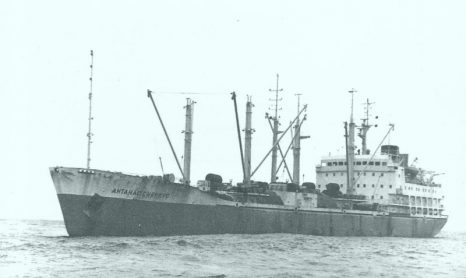
On this Day: April 12,1977: “Mother ship of the Russian fishing fleet” seized by Coast Guard off Nantucket
On this day in 1977, a so-called “mother ship of the Russian fishing fleet” off New England was taken to Boston to join another Soviet vessel under guard at the Boston Coast Guard Station for suspicion of violating the new US 200-mile fishing limit. The 503-foot refrigerator-transport vessel Antanas Snechkus (shown below) was seized 100 miles southeast of Nantucket with 100 tons of fish believed to have been caught illegally under the new limit, which took effect March 1, 1977. A day before the Antanas Snechkus was seized, the Coast Guard boarded the 275-foot Russian trawler Taras Shevchenko about 240 miles southeast of Boston and 75 miles inside the limit under direct orders from President Jimmy Carter. click here to read the story 06:33
Good Lord. Pacific Fishery Management Council Closes 200 Miles Of West Coast To Salmon Fishing
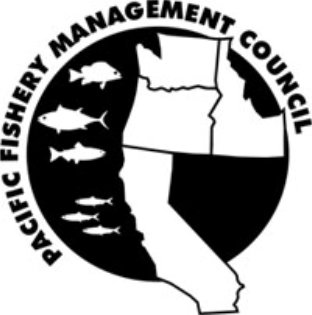 About 200 miles of the West Coast will be closed to ocean salmon fishing this year to protect a record-low run of Klamath River chinook. Fishery managers with the Pacific Fishery Management Council voted Tuesday for a total closure of ocean salmon seasons from southern Oregon to northern California. Commercial troll fishing seasons will be closed from Florence, Oregon, to Horse Mountain, which is south of Eureka, California. Sport fishing seasons will be closed from Humbug Mountain south of Port Orford, Oregon, to Horse Mountain in northern California. The rest of the coast will have limited fishing seasons. West Coast salmon runs have been hit hard in recent years by drought conditions in their native rivers and El Niño conditions in the Pacific Ocean that reduce their food sources. While fishermen up and down the coast are in for a tough year, those who depend on Klamath River salmon are already calling for help. Fishing groups and Native American tribes plan to ask California Gov. Jerry Brown to declare a fishing disaster so they can receive federal assistance. click here to read the story 18:03
About 200 miles of the West Coast will be closed to ocean salmon fishing this year to protect a record-low run of Klamath River chinook. Fishery managers with the Pacific Fishery Management Council voted Tuesday for a total closure of ocean salmon seasons from southern Oregon to northern California. Commercial troll fishing seasons will be closed from Florence, Oregon, to Horse Mountain, which is south of Eureka, California. Sport fishing seasons will be closed from Humbug Mountain south of Port Orford, Oregon, to Horse Mountain in northern California. The rest of the coast will have limited fishing seasons. West Coast salmon runs have been hit hard in recent years by drought conditions in their native rivers and El Niño conditions in the Pacific Ocean that reduce their food sources. While fishermen up and down the coast are in for a tough year, those who depend on Klamath River salmon are already calling for help. Fishing groups and Native American tribes plan to ask California Gov. Jerry Brown to declare a fishing disaster so they can receive federal assistance. click here to read the story 18:03
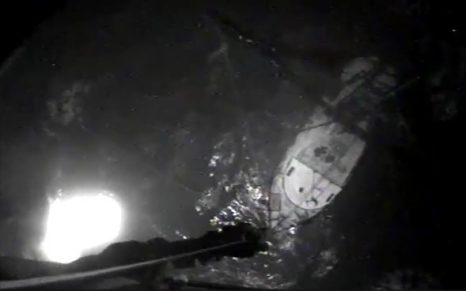
Coast Guard rescues 3 from grounded shrimp boat near Pass Cavalo, Texas
A Coast Guard helicopter crew hoisted three men off of a disabled shrimp boat that grounded early Tuesday morning near Pass Cavalo, about 5 miles southeast of Port O’Connor. Monday at 11:21 p.m., Calhoun County Sherrif’s office called Sector Corpus Christi watchstanders and reported the F/V Scatterbrain, a 67-foot shrimp boat with three people aboard, had become disabled and was adrift and dragging anchor. Due to shallow water depth, Coast Guard boat crews were unable to reach the men. Air Station Corpus Christi helicopter crews arrived at 4:17 a.m. and hoisted hoisted them to safety. They were taken to Calhoun County Airport with no injuries. The Coast Guard is working with the owner of the boat to safely recover it and prevent environmental impacts. click here to watch video 17:21
Japan embraces Russ George’s scheme for iron fertilization
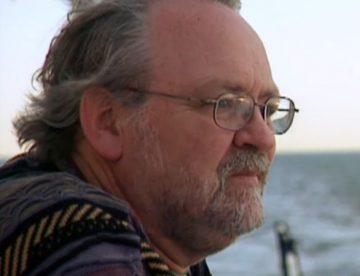 Russ George is semi-famous for dumping over 100 metric tons of iron dust, iron sulfate fertilizer and iron oxide into the sea off British Columbia, Canada in 2012. The act, he claims, spurred a plankton bloom that fed a huge surge in pink salmon returns the following year and in chum salmon returns in 2016 – the difference in years reflecting the different lifecycles of the species. The plan sought to replicate the effect of the eruption of Kasatochi volcano in the Aleutians, which also deposited iron-rich dust and spurred a plankton bloom. Sequestering carbon – in the hard shells of diatoms that sink to the ocean floor – was a supposed secondary benefit. However, George’s experiment, undertaken with the backing of a Native American (First Nations) group, the Haida in the village of Old Masset, and carried out as a corporate activity of the “Haida Salmon Restoration Corporation,” was deemed a rogue experiment. click here to read the story 15:36 click here to read “Japanese Salmon Fisheries In Historic Collapse Help On The Way” 15:40
Russ George is semi-famous for dumping over 100 metric tons of iron dust, iron sulfate fertilizer and iron oxide into the sea off British Columbia, Canada in 2012. The act, he claims, spurred a plankton bloom that fed a huge surge in pink salmon returns the following year and in chum salmon returns in 2016 – the difference in years reflecting the different lifecycles of the species. The plan sought to replicate the effect of the eruption of Kasatochi volcano in the Aleutians, which also deposited iron-rich dust and spurred a plankton bloom. Sequestering carbon – in the hard shells of diatoms that sink to the ocean floor – was a supposed secondary benefit. However, George’s experiment, undertaken with the backing of a Native American (First Nations) group, the Haida in the village of Old Masset, and carried out as a corporate activity of the “Haida Salmon Restoration Corporation,” was deemed a rogue experiment. click here to read the story 15:36 click here to read “Japanese Salmon Fisheries In Historic Collapse Help On The Way” 15:40
Seafood Harvesters of America oppose bill that re-examines fisheries allocations
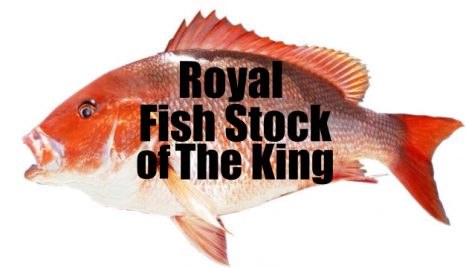 A new bill focused on recreational fishing has drawn strong opposition from the nation’s largest organization of commercial seafood harvesters. The Seafood Harvesters of America (Catch Share Club) claims that the bill would hamstring federal regional fishery councils’ ability to manage the fishery sector and most species, while also limiting the ability to innovate new solutions to overfishing. The bill was submitted April 6 and would change the Magnuson-Stevens Fishery Conservation and Management Act. It allows for alternative management of waters for recreational fishing, re-examines fisheries allocations and establishes exemptions to certain catch limits. The bill would require regular review of catch allocations, which recreational fishermen say have historically benefited commercial fishermen. The harvesters group released a statement late Sunday voicing concern about the Modernizing Recreational Fisheries Management Act of 2017. The bill was introduced by U.S. Reps. Garret Graves, R-La.; Gene Green, D-Texas; Daniel Webster, R-Fla.; and Rob Wittman, R-Va. click here to read the story 14:07
A new bill focused on recreational fishing has drawn strong opposition from the nation’s largest organization of commercial seafood harvesters. The Seafood Harvesters of America (Catch Share Club) claims that the bill would hamstring federal regional fishery councils’ ability to manage the fishery sector and most species, while also limiting the ability to innovate new solutions to overfishing. The bill was submitted April 6 and would change the Magnuson-Stevens Fishery Conservation and Management Act. It allows for alternative management of waters for recreational fishing, re-examines fisheries allocations and establishes exemptions to certain catch limits. The bill would require regular review of catch allocations, which recreational fishermen say have historically benefited commercial fishermen. The harvesters group released a statement late Sunday voicing concern about the Modernizing Recreational Fisheries Management Act of 2017. The bill was introduced by U.S. Reps. Garret Graves, R-La.; Gene Green, D-Texas; Daniel Webster, R-Fla.; and Rob Wittman, R-Va. click here to read the story 14:07
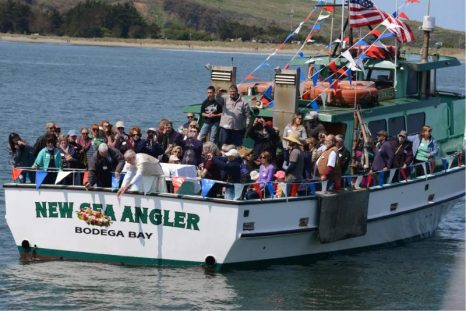
Bodega Bay Fisherman’s Festival celebrates its working waterfront with Blessing of the Fleet
In a tradition that stretches back nearly 60 years, local fishermen gathered their fleet off Doran Spit on Sunday to receive a blessing for bountiful catches and safe returns. Skippers, aboard boats sporting colorful maritime decorations in their rigging, tuned their VHF radios to channel 09 and cranked up the volume so their crews, friends and family aboard could hear local clergy pray for them in the annual blessing of the fleet. “We praise you for the vast abundance of the sea,” said Pastor Neal Miller of the Fisherman’s Chapel in prayer. Miller was joined aboard the New Sea Angler by Pastor Jerry Lites of Bodega Bay Church and Father Gary Moore of the Diocese of Santa Rosa. After a few lean years, the Bodega Bay fleet is praying the Lord will manifest that abundance onto their hooks and into their crab pots. The blessing of the fleet, which has taken place every year since 1958, is appreciated by both captains and crew. 14 great images, click here to read the story 13:12
U.S. imposes new seafood import rules – DFO says it’s too soon to know what fisheries in Canada will be affected
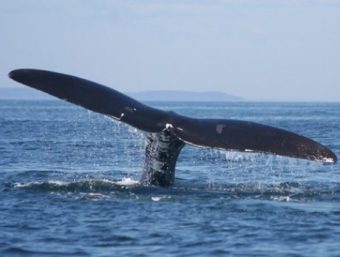 The United States is now requiring proof that its seafood imports are harvested in a way that minimizes harm to marine mammals like whales — and that has concerned some members of Atlantic Canada’s fishing industry. As of Monday, countries had to submit a list of fisheries measures in place to limit by-catch and gear entanglements with whales, turtles, porpoises and seals. The U.S. wants standards comparable to those imposed on American fisheries.,, “It could be a big problem,” said Bernie Berry, president of the Coldwater Lobster Association, a group representing fishermen in Canada’s most lucrative lobster fishing areas in southwest Nova Scotia.,, “It could be a big problem,” said Bernie Berry, president of the Coldwater Lobster Association, a group representing fishermen in Canada’s most lucrative lobster fishing areas in southwest Nova Scotia. click here to read the story 12:07
The United States is now requiring proof that its seafood imports are harvested in a way that minimizes harm to marine mammals like whales — and that has concerned some members of Atlantic Canada’s fishing industry. As of Monday, countries had to submit a list of fisheries measures in place to limit by-catch and gear entanglements with whales, turtles, porpoises and seals. The U.S. wants standards comparable to those imposed on American fisheries.,, “It could be a big problem,” said Bernie Berry, president of the Coldwater Lobster Association, a group representing fishermen in Canada’s most lucrative lobster fishing areas in southwest Nova Scotia.,, “It could be a big problem,” said Bernie Berry, president of the Coldwater Lobster Association, a group representing fishermen in Canada’s most lucrative lobster fishing areas in southwest Nova Scotia. click here to read the story 12:07
DFO files police complaint over shrimp fishermen who stormed St. John’s headquarters
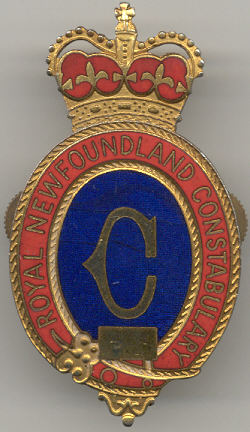 The Department of Fisheries and Oceans (DFO) has filed a police complaint about a shrimp protest that took a drastic turn Friday when fishermen broke a door and stormed the headquarters in St. John’s. Two doors were damaged Friday, as about 50 protesters gained access to the federal building on White Hills Road. RNC Const. Steve Curnew said a member of the general investigation unit is looking into the matter. There were also reports of DFO officials being intimidated, as fishermen walked the halls calling out the names of specific individuals in the building. click here to read the story 11:28
The Department of Fisheries and Oceans (DFO) has filed a police complaint about a shrimp protest that took a drastic turn Friday when fishermen broke a door and stormed the headquarters in St. John’s. Two doors were damaged Friday, as about 50 protesters gained access to the federal building on White Hills Road. RNC Const. Steve Curnew said a member of the general investigation unit is looking into the matter. There were also reports of DFO officials being intimidated, as fishermen walked the halls calling out the names of specific individuals in the building. click here to read the story 11:28
Two inshore shrimpers busted for fishing during closed season, one with running lights off
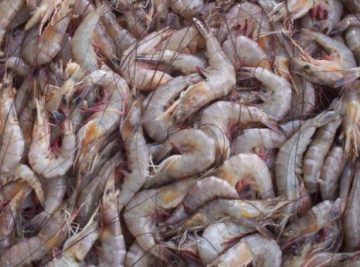 Due to the unseasonably warm winter and spring, brown shrimp have grown quickly in Louisiana’s marshes, and some shrimpers have been trying to get a jump on their competition. Louisiana Department of Wildlife and Fisheries agents say they busted two shrimpers Saturday who were using skimmer nets in English Bay near Buras even though the inshore season won’t open for several more weeks. According to the department, the men were pulling their nets at 10:30 p.m. without the boat’s navigation lights on. Agents cited John Berthelot, 37, of Covington, and Juan Cruz, 38, of Marrero, for using skimmers during a closed season. Agents also cited Berthelot for improper navigation lights. click here to read the story 10:08
Due to the unseasonably warm winter and spring, brown shrimp have grown quickly in Louisiana’s marshes, and some shrimpers have been trying to get a jump on their competition. Louisiana Department of Wildlife and Fisheries agents say they busted two shrimpers Saturday who were using skimmer nets in English Bay near Buras even though the inshore season won’t open for several more weeks. According to the department, the men were pulling their nets at 10:30 p.m. without the boat’s navigation lights on. Agents cited John Berthelot, 37, of Covington, and Juan Cruz, 38, of Marrero, for using skimmers during a closed season. Agents also cited Berthelot for improper navigation lights. click here to read the story 10:08
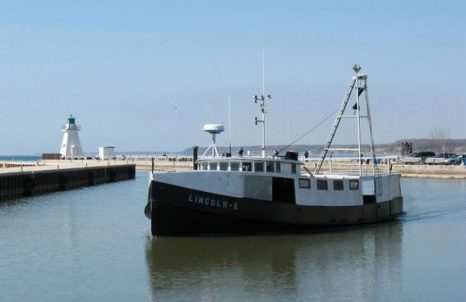
TAC increase brings optimistic times for Lake Erie commercial fishery
The Canada-U.S. committee that manages the fishery likes the recent research data it has seen. As a result, the Lake Erie Committee has increased the amount of yellow perch and walleye commercial fishermen are allowed to catch this year. The total allowable catch for yellow perch has been pegged at 10.4 million pounds. This is a 13 percent increase over 2016. The numbers are even better for walleye, which is commonly served in lakeshore restaurants as pickerel. As a top predator in the lake, walleye are managed as individuals and not by weight. The Lake Erie Committee will allow 5.924 million walleye to be harvested this year. That’s a 20 percent increase over 2016. click here to read the story 09:38
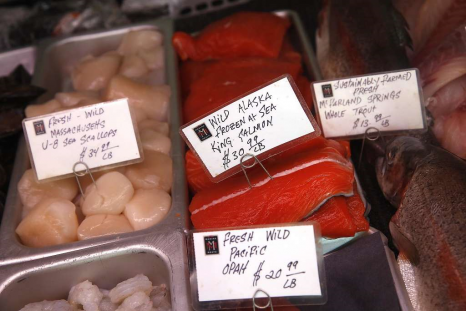
California likely to shorten chinook salmon season
With chinook salmon at its lowest population in years, West Coast fishery managers are considering a proposal to strictly limit the commercial season and to delay its start around the San Francisco Bay from its usual May date to August. A final decision will be made on Tuesday. “You’re probably going to find it only in your upscale grocery stores and upscale restaurants, and it’s not going to be always available. It’s probably not going to be cheap,” said Dave Bitts, a Eureka fisherman and adviser to the Pacific Fishery Management Council, which manages fisheries in the federal waters off California, Oregon and Washington. Click here to read the story 08:55
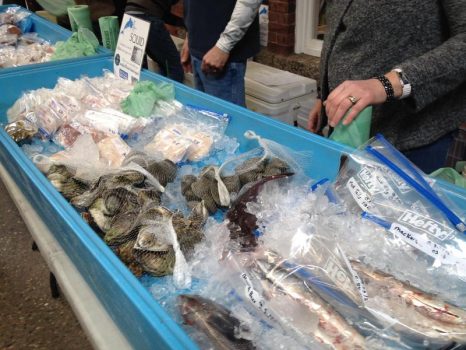
RI Fishing Industry Looks To Grow Local Demand Amid Changing Regulations
Fishing has long been a staple industry in Rhode Island. Over the last century ever more local seafood is shipped across the country and the globe. Now, as fishermen are working to grow the local market, in the face of changing regulations and technology.The Pawtucket indoor farmer’s market is bustling on a recent Saturday morning. Among the rows of vendors selling veggies, eggs, and homemade soaps is the Local Catch – purveyor of locally caught seafood. Laid out over shaved ice are fish like dabs, a type of flounder, John Dory, and Monkfish. It’s all readily available in local waters. Yet Rhode Islanders might be hard-pressed to find them in a neighborhood grocery store. “Before we started the Local Catch I fished for about 35 years with my own boat,” said Local Catch owner Richard Cook. “We went to a couple fish markets at Stop and Shops and stuff like that and nobody had any local fish it was all from Alaska and China and all over the place.” click here to listen to audio, read the story 08:23






